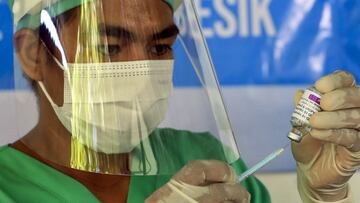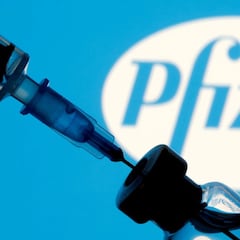Can you get covid-19 after second vaccine dose?
No vaccine is 100 percent effective, but by being fully vaccinated people can avoid severe sickness and reduce the possibility of spreading the disease.

In clinical trials the three covid-19 vaccines that have been approved for emergency use were proven to be very effective at stopping the spread of the virus. Now with over 41 percent of the US population fully vaccinated that efficacy is sustaining even in light of new variants becoming dominant.
Vaccines teach our bodies to fight off a disease, but even so sometimes the immune system doesn’t develop the necessary protection, not to mention that viruses mutate as they are given time to spread and people to effect. There are now several variants of the covid-19 virus present in the US, but so far, the vaccines have proven effective at keeping the vast majority of vaccinated people safe from infection.
Also see:
- New data shows possible benefits of receiving two different covid vaccines.
- New Mexico announces covid-19 vaccine lottery
- Covid-19 variants given new simplified names
- Employers search for guidance after CDC lifts mask mandates for those fully vaccinated
How effective are the vaccines?
In clinical trials both the Pfizer-BioNTech and Moderna vaccines were shown to be over 90 percent effective at preventing covid-19 infection in those fully vaccinated. The Johnson and Johnson covid-19 achieved a lower efficacy at 66 percent but that was over the 50 percent bar establish by the FDA, and the Johnson and Johnson vaccine has a couple advantages over its competitors, ease of transport and it’s a single-dose vaccine.
For comparison, the flu vaccine since 2004-2005 season has ranged from 10 percent to 60 precent effective. However, even so, the vaccine helps many people from getting seriously ill and needing hospitalization.
About 80% of U.S. states & territories are seeing declining rates of #COVID19 cases.
— CDC (@CDCgov) June 2, 2021
The 7-day average of daily new cases is 15,623, a 30.8% decrease from the previous week. Get vaccinated as soon as you can. More data: https://t.co/gp6X4zTnBT. pic.twitter.com/TwgHgRVDVX
The Center for Disease Control and Prevent (CDC) says that 14 days must pass from completion of all recommended doses of an FDA authorized vaccine for a person to reach full immunity. So far, over 163 million Americans 12 and up have reached that mark and with over 50 percent receiving at least one dose of vaccine.
It is possible to get sick from covid-19 after becoming fully vaccinated?
The simple answer is yes, but it is exceedingly rare. According to data from the CDC reported breakthrough cases represent just 0.0001 percent of those that have been fully vaccinated. As of 30 April, over 101 million Americans had been fully vaccinated against covid-19, and there were 10,262 reported breakthrough cases. The agency acknowledges that there could be under reporting stating “The national surveillance system relies on passive and voluntary reporting, and data might not be complete or representative.”
🧪 COVID-19 Science Update:
— CDC (@CDCgov) June 2, 2021
Read the latest #COVID19 research on vaccine effectiveness, deaths related to the pandemic in the United States and across the globe, and more.
👓 Read the full update: https://t.co/6cA8dtGwgS.
However, most importantly the number of people hospitalized for covid-19 that were fully vaccinate was just 995 patients and 160 died. The median age of patients who died was 82 years old and almost a fifth of the total were asymptomatic or died of non-related causes. Another factor, during the surveillance period covid-19 transmission continued at high levels in many parts of the country.
Related stories
The CDC also hasn't traced back any cases where a fully vaccinated person has been the cause of an infection in another person.
Health officials are still learning about the covid-19 disease. They are studying how long the vaccine will be effective against the disease and whether a booster shot will be needed. Additionally, until the world has reached herd immunity to prevent additional mutations that might evade the vaccines’ effectiveness the covid-19 pandemic will still present a threat. For these reasons the CDC is still recommending even those that are fully vaccinated to take precautions to avoid contagion. This includes wearing masks in indoor public places, avoiding large indoor gatherings and washing your hands often. But most of all to get vaccinated to help stop the spread of the virus.


